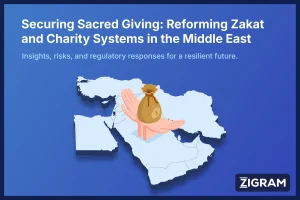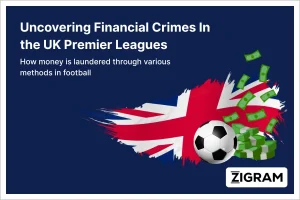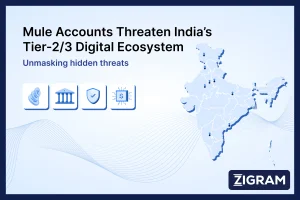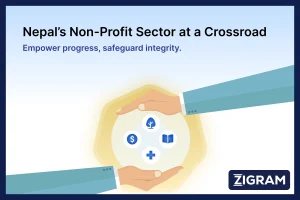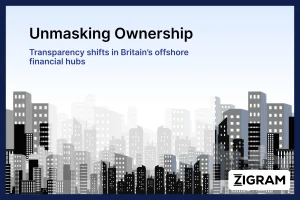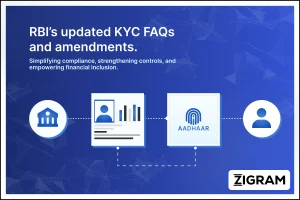Shell companies often characterized by minimal substance and opaque ownership structures, serve as conduits for various purposes, ranging from legitimate business activities to illicit practices such as money laundering, tax evasion, and fraud. Despite efforts by regulatory authorities to curb their misuse, shell companies continue to proliferate across jurisdictions, posing significant challenges to transparency and accountability in the global financial system.

What are Shell Companies:
There exists no perfect or constant definition for shell companies, every platform or individual has a different characterization about shell companies. A shell company is a business entity with no substantial operations or assets of its own. Instead, it exists primarily as a legal vehicle to conduct financial transactions or hold assets on behalf of its beneficial owner(s). The lack of genuine economic activity makes shell companies attractive for individuals and entities seeking to conceal their financial dealings or obscure the origins of funds. As per FATF, a shell company is considered to be an incorporated company with no independent operations, significant assets, ongoing business activities, or employees. Shell companies tend to be conduits or holding companies.
Characteristics:
Nominee Directors and Shareholders:
Shell companies often employ nominee directors and shareholders, who act as placeholders to mask the true ownership and control of the entity. These individuals may have no actual involvement in the company's activities and may be appointed solely for the purpose of maintaining anonymity.
Offshore Jurisdictions:
Many shell companies are registered in offshore jurisdictions known for their lenient regulatory regimes, low tax burdens, and strict confidentiality laws. Popular offshore destinations include the British Virgin Islands, Panama, the Cayman Islands, and Seychelles, among others.
Complex Ownership Structures:
Shell companies frequently employ complex ownership structures involving multiple layers of corporate entities and trusts, making it difficult to trace ultimate beneficial ownership. This layering of entities adds a veil of secrecy, making it challenging for authorities to uncover illicit activities.
Lack of Substance:
Unlike legitimate businesses, shell companies have little to no physical presence, employees, or tangible assets. They may operate out of virtual offices or exist only on paper, further obscuring their true nature.
Role of Shell Companies in Tax Evasion, Money Laundering, and Fraud
While shell companies can indeed fulfill legitimate purposes, such as facilitating cross-border investments or safeguarding privacy in specific transactions, they are also infamously exploited for a range of illicit activities. These include:
Tax Evasion:
Shell companies are commonly employed as vehicles for tax evasion strategies, allowing individuals and corporations to conceal income, profits, or assets from tax authorities. Utilizing multiple jurisdictions with lenient tax laws, funds are often routed to minimize tax liabilities.
Money Laundering:
The inherent lack of transparency and oversight surrounding shell companies renders them ideal instruments for laundering illicit proceeds derived from criminal activities like drug trafficking, corruption, and organized crime. Funds are systematically transferred through a maze of shell companies to obfuscate their illicit origins and seamlessly integrate them into the legitimate financial system.
Fraud and Financial Crimes:
Shell companies serve as fertile ground for perpetrating various forms of fraud, encompassing securities fraud, Ponzi schemes, and embezzlement. Fraudsters exploit the anonymity and ease of setting up shell entities to fabricate companies or manipulate financial records, deceiving investors, creditors, and regulatory bodies for personal gain.
Concealment of Assets and Wealth:
High-net-worth individuals and politically exposed persons (PEPs) frequently utilize shell companies to shield their assets and wealth from public scrutiny, creditors, or legal adversaries. By channeling assets through anonymous entities, they effectively safeguard their wealth and maintain a veil of privacy, often at the expense of transparency and accountability.
Shell Company Misuse: Case Studies from Dubai and UAE
Dubai, with its reputation as a global financial center and its favorable tax regime, provided an attractive environment for the Guptas to set up their shell companies. The city's free zones, such as Jebel Ali, offer enticing incentives for offshore companies, including 100% foreign ownership, no taxes, and full confidentiality for owners. This environment facilitated the proliferation of shell companies, making it difficult to trace the true beneficiaries of these entities and the flow of funds. Furthermore, Dubai's corporate culture is characterized by a lack of transparency and oversight, allowing shell companies to operate with minimal scrutiny. The city's authorities have been criticized for their "ask-no-questions, see-no-evil" approach to financial regulation, which has made it a preferred destination for individuals and entities seeking to conceal their wealth or engage in illicit financial activities.
Gupta Case: Dubai's Role as a Tax Haven
In the case of the Gupta family, the #GuptaLeaks investigation revealed the extensive network of shell companies they established in Dubai to process the proceeds of corruption from South Africa. These companies were used to receive funds from government contracts and other sources, which were then allegedly laundered through complex financial transactions. Despite efforts to uncover their activities, the opaque nature of Dubai's financial system and the challenges associated with international cooperation in financial investigations have made it difficult to hold the Guptas and their associates accountable for their alleged crimes. The story underscores the role of Dubai as a tax haven with minimal transparency, enabling illicit financial flows and facilitating corruption on a global scale.
Pandora Papers - UAE's Attraction for African Elites
The UAE has become a favored destination for African elites, who are increasingly establishing shell companies and bank accounts there. The Pandora Papers investigation revealed instances of African politicians and business leaders, such as the son of Comoros' president, setting up shell companies in the UAE to conduct business activities. Despite concerns about the UAE's record on illicit finance, including its history as a conduit for corrupt proceeds and its reluctance to share information with other countries, many are drawn to its lenient business regulations and favorable tax exemptions. The UAE's appeal extends beyond African elites, with individuals from various countries, including Kazakhstan and Bulgaria, also utilizing its offshore services. Despite criticisms and legal challenges, the trend of establishing offshore entities in the UAE continues among wealthy and influential individuals, highlighting the country's significance in global financial flows.
1MDB Scandal - UAE's Involvement
Similarly, the 1MDB scandal in Malaysia involved the alleged theft and laundering of billions of dollars through shell companies and offshore accounts. The UAE’s de-facto leader and Crown Prince of Abu Dhabi Sheikh Mohammed bin Zayed was involved in the multibillion-dollar financial scam that allegedly implicates Malaysia’s former prime minister Najib Razak. The official link between Abu Dhabi and 1MDB was for a $1 billion investment into Malaysian real estate, hospitality, and energy via a bond guarantee in 2009. Funds put up by 1MDB as collateral against the guarantee never reached Abu Dhabi, landing instead in what is believed to be a British Virgin Island vehicle set up by Al-Qubaisi and Mohamed Badaway Al Husseiny, the former head of an IPIC subsidiary, Aabar.
Axact Affair and Bahria Town Case:
The Axact affair involved allegations that a Pakistani IT firm by the name of Axact ran a bogus diploma mill and used offshore accounts in Dubai and the US to launder millions of dollars. Several people, including the CEO of Axact, were apprehended and found guilty in the case. Another instance is the Bahria Town case, which involves accusations of corruption and money laundering against the CEO of the Pakistani real estate firm Bahria Town. The CEO was accused of establishing offshore businesses and accounts in Dubai and the British Virgin Islands in order to launder funds earned via bribery and corruption. The CEO agreed to pay a fine and give the Pakistani government ownership of some of his assets as part of the settlement of the lawsuit.
Rami Makhlouf's Case
Rami Makhlouf, a controversial figure tied to the Syrian regime, has used UAE shell companies to hide assets. Despite leaks revealing his connections to properties in Dubai, official documentation remains elusive, showcasing the challenge of unraveling these networks. Research methods for exposing shell company ownership range from leaks and online searches to human sources. However, such investigations come with risks, including surveillance and hacking. Shell companies serve various purposes, from money laundering to tax evasion, blurring the lines between public and private wealth.
Dubai's Free Zones and Challenges in Investigating Offshore Accounts
The UAE’s free zones, like Dubai’s Jebel Ali Free Zone Authority (JAFZA), offer enticing incentives for offshore companies: 100% foreign ownership, no taxes, and full confidentiality for owners. This environment has led to the proliferation of shell companies, which hold assets without engaging in real business. These shells create intricate webs of ownership, making it hard to trace assets and hold accountable those who benefit. Due to the strong bank secrecy regulations in the UAE, it can be challenging to learn who the real owners are of the assets that corporations and bank accounts hold. JAFZA boasts over 7,000 incorporated companies, constituting a significant and expanding segment of the United Arab Emirates (UAE) economy. It represents close to a quarter of Dubai’s foreign direct investment and contributes substantially to its GDP. Additionally, within JAFZA, there exist hundreds, if not thousands, of shell companies, many of which have minimal physical presence beyond a mere post office box.
It can be challenging to locate the genuine beneficial owners of the assets housed by the shell companies and follow the flow of money because they lacked access to information from the UAE authorities. Governments and law enforcement organizations frequently demand increased openness in international financial transactions, including the disclosure of offshore accounts and the flow of money between them, in order to prevent illegal crimes. In order to properly investigate and punish people who participate in unlawful operations involving offshore accounts and the movement of cash, law enforcement authorities must cooperate internationally. Due to the strong bank secrecy regulations in the UAE, it can be challenging to learn who the real owners are of the assets that corporations and bank accounts there hold. It can be challenging to locate the genuine beneficial owners of the assets housed by the shell companies and follow the flow of money because they lacked access to information from the UAE authorities. Dubai’s rise as a global financial center raises concerns about accountability. Its model is being exported worldwide, facilitated by entities like DP World. Yet, the lack of transparency in such zones poses risks for countries with weaker regulatory frameworks.
The Role of Regtech in Addressing Shell Company Risks
To address the growing concerns surrounding shell companies and their associated risks, regulatory bodies worldwide have implemented proactive measures. These efforts include enhancing due diligence procedures, where financial institutions and service providers are mandated to conduct rigorous checks on clients, obtaining comprehensive beneficial ownership information to mitigate risks associated with shell companies. Additionally, some jurisdictions have introduced public registers of beneficial ownership, offering transparency to identify ultimate owners of corporate entities, aiding in detecting shell company misuse and empowering regulatory authorities and stakeholders to combat financial crime effectively. Strengthening anti-money laundering (AML) regulations is also crucial, enabling regulatory bodies to monitor financial transactions, identify suspicious activities, and disrupt illicit financial flows linked to shell companies. Robust AML frameworks serve as deterrents to potential wrongdoers, thereby bolstering the integrity of the financial system. Moreover, promoting international cooperation among regulatory authorities is imperative, recognizing the cross-border nature of shell company operations. By fostering collaboration and sharing intelligence, jurisdictions can coordinate efforts to identify and disrupt illicit activities perpetrated through shell companies, enhancing investigative capabilities and regulatory oversight globally.
Addressing the challenges of money laundering and tax evasion emerging from shell companies require a multifaceted approach, where financial fraud detection companies, also known as Regtech firms, play a pivotal role. Regtech companies specializing in fraud detection and risk solutions offer invaluable tools to combat the misuse of shell companies. By harnessing advanced technologies like artificial intelligence and machine learning, these firms can analyze vast volumes of financial data to identify suspicious patterns and potential instances of shell company abuse. In the context of Dubai, where the prevalence of shell companies poses significant risks to financial integrity, the expertise of these firms becomes particularly crucial.
These companies can provide tailored solutions to enhance due diligence processes, verify beneficial ownership information, and strengthen compliance with anti-money laundering regulations. By collaborating with regulatory authorities and financial institutions in Dubai, Regtech firms contribute to the development of a robust regulatory framework that effectively mitigates the risks associated with shell companies. Moreover, the real-time monitoring capabilities offered by Regtech solutions enable proactive detection and prevention of financial crimes, further bolstering Dubai's efforts to maintain transparency and accountability in its financial ecosystem. By leveraging the expertise of financial fraud detection companies, Dubai can enhance its regulatory oversight, minimize the prevalence of illicit activities facilitated by shell companies, and uphold its reputation as a global financial hub committed to integrity and compliance.
- #UAE
- #ShellCompanies
- #AML
- #CFT
- #TaxEvasion
- #RegTech

